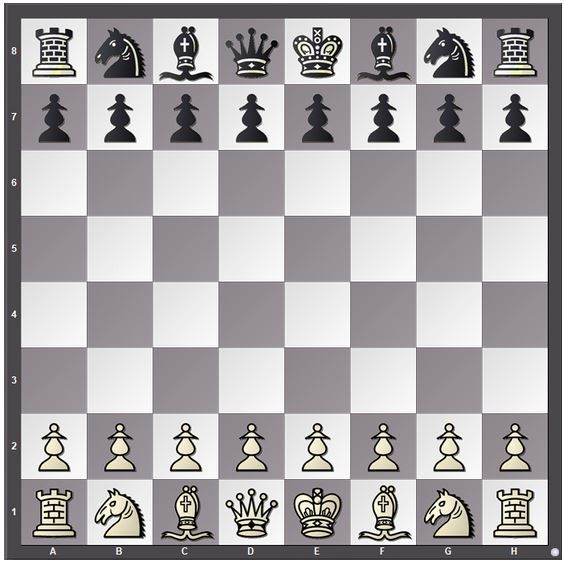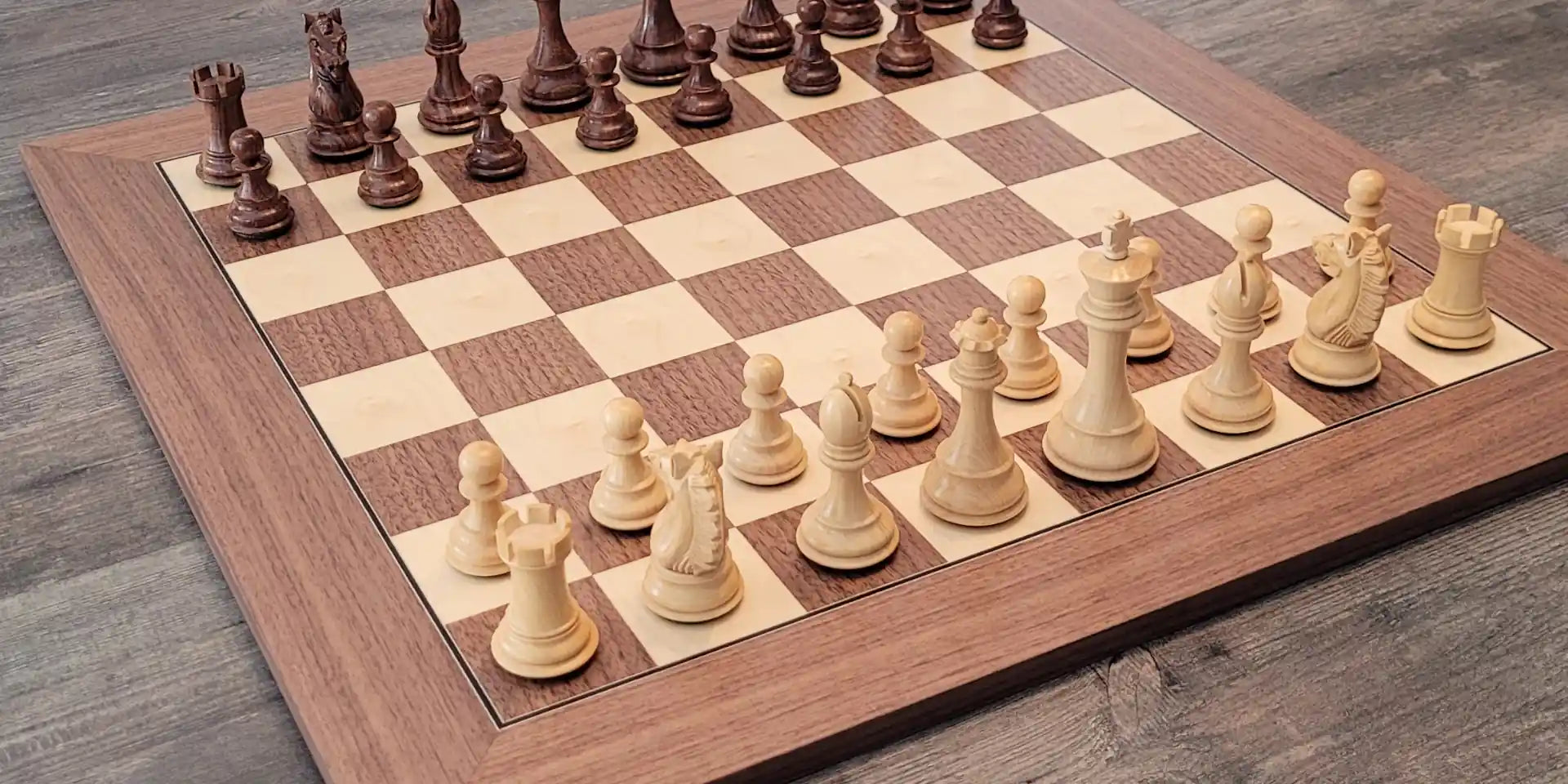All About Chess: Discover the Fascinating History and Approaches Behind the Game
Chess, with its origins going back to sixth century India, has actually transformed substantially over the centuries. This game has astounded minds worldwide, showcasing the radiance of legendary players like Garry Kasparov and Bobby Fischer. Understanding the intricacies of chess, from the motions of each piece to necessary methods, exposes its deepness. The inquiry stays: what drives the sustaining fascination with this ancient game? Exploring its history and approaches might uncover much deeper understandings.
The Origins of Chess: A Journey Via Time
The precise beginnings of chess stay unclear, historic evidence suggests that the game evolved from earlier techniques played in India around the Sixth century. Referred to as Chaturanga, this very early kind of chess included pieces standing for infantry, mounties, elephants, and chariots, reflecting the armed forces tactics of the time. As Chaturanga spread through trade routes, it adapted to numerous societies, bring about the development of Shatranj in Persia. This variant introduced brand-new guidelines and piece activities, laying the foundation for contemporary chess.
Chess Prodigies: Remarkable Numbers in the Game's History
Throughout chess history, remarkable prodigies have emerged, shaping the game's landscape and motivating future generations. From fabulous champs who dominated the boards in their time to modern skills redefining the restrictions of young people and ability, these gamers have actually made enduring marks on the sport. Their stories highlight not just individual luster but also the developing nature of chess as an affordable venture.
Legendary Chess Champions
Chess has actually been formed by the luster of various fabulous champs whose contributions have left an enduring mark on the game. Numbers like Garry Kasparov, known for his dynamic style and unrivaled strategic depth, controlled the chess globe throughout the late 20th century. Anatoly Karpov, his opponent, showcased exceptional positional understanding and emotional prowess, safeguarding several world titles. Bobby Fischer, an American prodigy, changed chess with his unrivaled talent and extreme emphasis, culminating in his 1972 World Champion triumph. In Addition, José Raúl Capablanca's natural capability and endgame mastery established new requirements in the early 20th century. These champions not just succeeded in competitors however likewise inspired generations, shaping chess right into an international sensation commemorated for its intellectual rigor and creativity.
Contemporary Prodigies
What makes a chess natural born player absolutely remarkable? The capacity to understand complicated approaches at a tremendously young age establishes them apart. Modern-day chess prodigies like Magnus Carlsen, Fabiano Caruana, and Alireza Firouzja have captivated audiences with their extraordinary skill. Carlsen, ending up being a Grandmaster at just 13, redefined expectations and ascended to Globe Champion status. Caruana, known for his deep prep work and tactical expertise, has continually tested the elite. Firouzja, born in 2003, stands for the new generation, combining imagination with ruthless aspiration. These gamers exhibit a blend of natural skill, extensive training, and psychological determination, influencing the game's advancement. Their payments assure that chess continues to be a vibrant and dynamic technique, motivating future generations of players worldwide.
Recognizing the Chessboard: Parts and Their Movements
The chessboard acts as the combat zone where complicated approaches unfold, including a distinct collection of pieces, each with distinctive motions and duties. Making up 64 squares arranged in an 8x8 grid, it is home to the king, queen, rooks, knights, bishops, and pawns. The king, the most vital piece, relocates one square in any direction, while the queen, the most effective, can pass through any kind of variety of squares up and down, horizontally, or diagonally. Rooks move in straight lines, whereas diocesans move diagonally across the board. Knights possess an one-of-a-kind L-shaped motion, leaping over other items. Pawns advance one square yet capture diagonally, with the alternative to relocate 2 squares onward on their preliminary move. Each piece's activity adds to the complex dance of method and techniques, making the chessboard a vibrant stage for intellectual combat. Comprehending these activities is basic for gamers aiming to navigate the intricacies of the game.

Crucial Techniques for Beginners: Tips to Improve Your Game
Grasping the motions of chess items prepares for developing reliable approaches. For beginners, concentrating on managing the center of the board is important. This allows for greater wheelchair and influence over the game. Creating pieces early, instead than relocating the exact same item multiple site here times, can aid establish a solid position.
In addition, players need to prioritize king safety by castling early, ensuring the king is concealed from dangers. Recognizing tactical chances, such as forks, pins, and skewers, can provide advantages in product gain. It is also vital to plan ahead; expecting a challenger's steps promotes better defensive and offensive play.
Finally, maintaining a balanced method between hostile and protective techniques can prevent unnecessary blunders. By carrying out these fundamental methods, novices can enhance their gameplay and construct a solid structure for future improvement in chess.
Advanced Strategies: Boosting Your Chess Abilities
In the domain name of chess, understanding advanced strategies can substantially boost a gamer's capacity. Recognizing tactical patterns, mastering endgame strategies, and understanding opening principles are vital aspects that raise one's game. These parts not just boost total performance yet likewise foster much deeper calculated thinking.

Tactical Patterns Recognition
Acknowledging tactical patterns is crucial for raising chess skills to a greater level. Gamers who master these patterns can identify opportunities for tactical maneuvers, boosting their opportunities of success. Typical patterns include forks, pins, skewers, and discovered attacks, each offering tactical advantages when performed effectively. Recognizing these concepts permits gamers to anticipate their challenger's actions and counter them effectively. Additionally, researching classic games can disclose how masters utilized tactical patterns to safeguard success. Normal method and evaluation of one's very own games can better enhance pattern recognition, enabling gamers to respond promptly and properly throughout matches. Ultimately, sharpening this ability changes the technique to chess, linking the void in between amateur and innovative play.
Endgame Strategies Mastery
Effective endgame approaches can greatly affect the end result of a chess suit, usually determining the difference between a win and a draw. Advanced players understand the importance of piece coordination and the Visit This Link usage of pawns in the endgame. Trick strategies include advertising pawns to queens and creating passed pawns that can advance unobstructed. Identifying important settings, such as the resistance and zugzwang, is vital for achieving useful configurations. Mastery of endgame strategies, such as king and pawn versus king scenarios, can transform prospective losses right into draws or wins. Gamers should likewise focus on streamlining the position when ahead, trading pieces to transform material advantages right into victory. Continual method and analysis of endgame placements will elevate a gamer's general chess skills greatly.
Opening Concepts Recognizing
Grasping endgame methods lays a strong foundation for recognizing opening concepts. In chess, the opening stage is crucial as it establishes the phase for the middle game. Chess. Gamers should focus on control of the center, establishing pieces successfully, and making sure king security. Reliable openings often entail moving pawns to develop main supremacy while collaborating minor and significant items for peak activity. The concepts stress not relocating the same piece several times without need and avoiding early queen advancement, which can cause susceptability. By adhering to these foundational methods, gamers can develop a solid structure that improves their tactical possibilities later on in the game. Recognizing these opening principles is crucial for raising one's chess abilities and attaining success

The Cultural Impact of Chess: Why It Issues Today
Chess, a video game with origins mapping back over a millennium, continues to exert an extensive cultural influence throughout the globe. It transcends simple home entertainment, working as a tool for education and learning, vital thinking, and social communication. Many instructional institutions include chess into their curricula, advertising cognitive growth and tactical thinking amongst students. The game likewise cultivates inclusivity, combining varied communities and motivating intergenerational links.
Chess has actually penetrated prominent culture, inspiring literature, films, and also fashion. Legendary numbers like Bobby Fischer and Garry Kasparov have ended up being social symbols, highlighting the game's capacity for individual and national satisfaction. In the digital age, on the internet platforms have even more democratized accessibility to chess, enabling millions to engage with the game. As society faces complicated difficulties, chess stays pertinent, offering lessons in patience, foresight, and resilience, thereby reinforcing its importance in modern culture and day-to-day live.
Frequently Asked Questions
How Has Chess Influenced Pop Culture and Media?
Chess has significantly influenced prominent society and media, showing up in films, literature, and art. It symbolizes intellect and strategy, motivating stories and personalities while advertising styles of problem, competitors, and the human experience.
What Are the Conveniences of Playing Chess for Mental Wellness?

Exist Various Chess Variants Played Around the Globe?
Yes, various chess variants are played internationally, consisting of Bughouse, Chess960, and Three-check chess. Each variant presents special regulations and strategies, offering players with diverse experiences and difficulties that vary from conventional chess.
How Do Chess Engines and AI Impact Modern Chess?
Chess engines and AI considerably improve contemporary chess by supplying innovative evaluation, boosting gamer abilities, and affecting methods. They act as training tools and competition aids, transforming how gamers come close to the game in all degrees.
What Are Usual Misconceptions About Chess Players?
Common false impressions about my blog chess players include the idea that they are all withdrawn geniuses, solely concentrated on technique. Chess. Actually, gamers differ significantly in personality, background, and strategy, frequently appreciating social interactions and varied interests